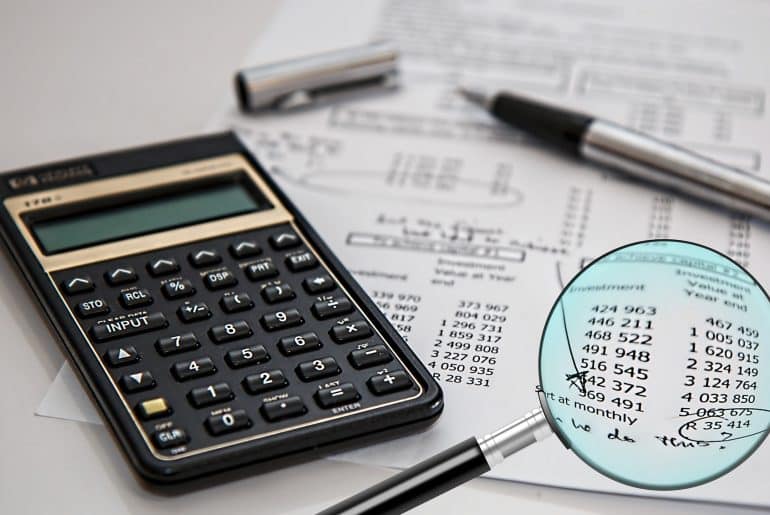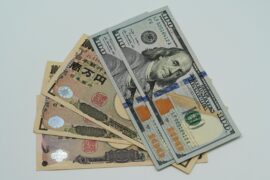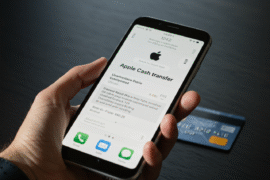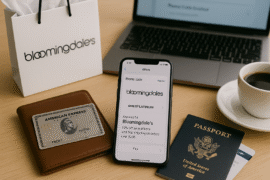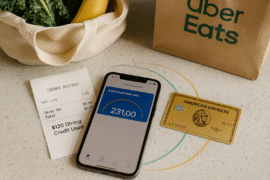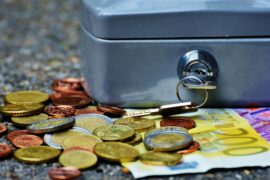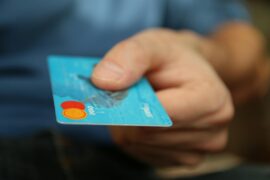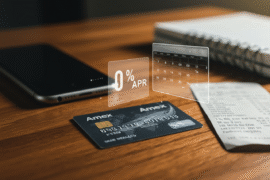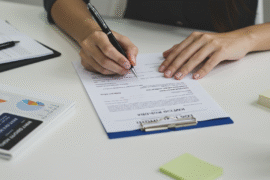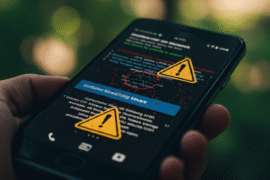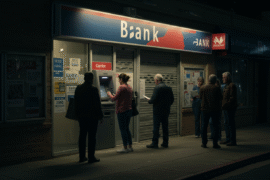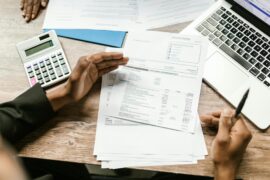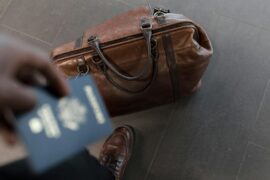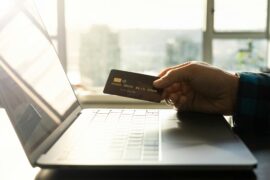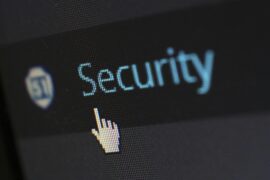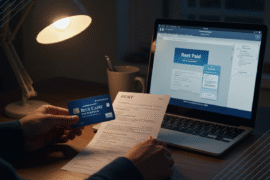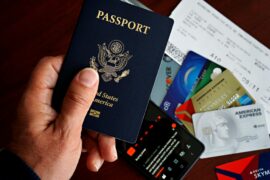This article may contain references to products or services from one or more of our advertisers or partners. We may receive compensation when you click on links to those products or services. Nonetheless, our opinions are our own.
The information presented in this article is accurate to the best of our knowledge at the time of publication. However, information is subject to change, and no guarantees are made about the continued accuracy or completeness of this content after its publication date.

Updated by Albert Fang
Your identity should always be unique to you, but sometimes sensitive information can fall into the wrong hands and cause serious damage. For example, if fraudsters access your identity, you can become a victim of financial, medical, or tax theft. Thankfully there are ways you can quickly identify such theft cases and take immediate action to stop the act.
Bank statements and pay stubs are great tools to help you identify errors, track your finances, and see your spending habits. These documents are significant in ensuring nobody is using your identity and causing damage.
Here’s how you can spot fraud and identity theft using your bank statement and pay stub.
Identify a Fake Bank Statement and Pay Stubs
The number of fraudsters using fake bank statements and pay stubs to obtain loans is on the rise. They use their victim’s personal information for fraudulent activities like applying for a mortgage and sometimes even emptying their bank accounts. That’s why it’s important to know how to detect a fake bank statement or pay stub.
An effective method of detecting a fake bank statement is using a bank statement template to reconcile totals. This helps to record your bank activities and explanations and contrast them with the original statement.
Irregularities on your bank statement or pay stub that show your identity is at risk, and you need to take immediate action. Some of the telltale signs that can help you identify fake financial documents include:
- Inaccurate dates and grammatical errors in your bank statement.
- A poorly formatted bank statement
- Bank statements are missing important information, including major transactions.
- Blurred texts and unprofessional graphics
- Unnecessary paperwork
- Forged signatures
- No bank stump
Unfamiliar Charges
After receiving your bank statement, check each transaction and make sure they are familiar. Any unfamiliar charges can be an indication of financial theft.
A criminal can use your identity to obtain goods, services or credit. Scanning through a bank statement and checking each transaction helps identify and report unfamiliar charges.
New Loans, Credit Cards, or Credit Card Charges
When you notice new information under your name, ensure it’s accurate. But if you can’t remember signing for a new credit card or applying for a loan, that could be a sign of identity theft.
Normally you should get information about a new credit card or loan through a phone call, email, or mail, but fraudsters might alter your mailing address.
If you can’t recognize new credit card charges in your bank statement, you could be a victim of identity theft, and you need to immediately report such cases and freeze your credit.
Voted "Best Overall Budgeting App" by Forbes and WSJ
Monarch Money helps you budget, track spending, set goals, and plan your financial future—all in one app.
Get 50% OFF your first year with code MONARCHVIP
Inaccurate Tax information
A malicious actor can fraudulently file taxes using your personal information and collect your income tax refund. So, check your pay stub and ensure tax information is accurate.
A pay stub shows a summary of the amount you are earning over a specific period. It also provides information about deductions like tax, medical, and retirement. Check and verify that these deductions are correct, specifically, tax deductions.
If you notice inaccurate information, follow up so you don’t become a victim of tax identity theft. Notifications from the IRS before filing your taxes can also be a warning that someone might be trying to use your tax information.
Check for Changes to Your Personal Information
Identity thieves may also use your bank statements and pay stubs to access your personal information, such as your name, address, and Social Security number. Therefore, review your bank statement and pay stubs for any changes to this information, such as an incorrect address or name change that you did not authorize.
If you see any changes, contact your bank or employer immediately to report the issue and take steps to protect your identity.
Verify the Accuracy of Your Direct Deposit
If you receive direct deposit for your paychecks, check your pay stubs to ensure that the amount and frequency of your deposits are correct. If you notice any discrepancies, contact your employer to verify the accuracy of your direct deposit information. This can help prevent fraudsters from stealing your paycheck or redirecting your direct deposit to another account.
Final Thoughts
Anyone can be a victim of identity theft or fraud if they don’t take caution. Whether you operate a small or big business or are employed, keeping track of your financial information and documents can save you from huge losses.
Fortunately, documents like bank statements and pay stubs can help you identify irregularities in your financial, medical, or tax records, thus ensuring thieves don’t use your personal information fraudulently.

Reviewed and edited by Albert Fang.
See a typo or want to suggest an edit/revision to the content? Use the contact us form to provide feedback.
At FangWallet, we value editorial integrity and open collaboration in curating quality content for readers to enjoy. Much appreciated for the assist.
Did you like our article and find it insightful? We encourage sharing the article link with family and friends to benefit as well - better yet, sharing on social media. Thank you for the support! 🍉
Article Title: Bank Statements and Pay Stubs – How to Spot Fraud, Identity Theft
https://fangwallet.com/2023/05/10/bank-statements-and-pay-stubs-how-to-spot-fraud-identity-theft/The FangWallet Promise
FangWallet is an editorially independent resource - founded on breaking down challenging financial concepts for anyone to understand since 2014. While we adhere to editorial integrity, note that this post may contain references to products from our partners.
The FangWallet promise is always to have your best interest in mind and be transparent and honest about the financial picture.
Become an Insider

Subscribe to get a free daily budget planner printable to help get your money on track!
Make passive money the right way. No spam.
Editorial Disclaimer: The editorial content on this page is not provided by any of the companies mentioned. The opinions expressed here are the author's alone.
The content of this website is for informational purposes only and does not represent investment advice, or an offer or solicitation to buy or sell any security, investment, or product. Investors are encouraged to do their own due diligence, and, if necessary, consult professional advising before making any investment decisions. Investing involves a high degree of risk, and financial losses may occur including the potential loss of principal.
Source Citation References:
+ Inspo
